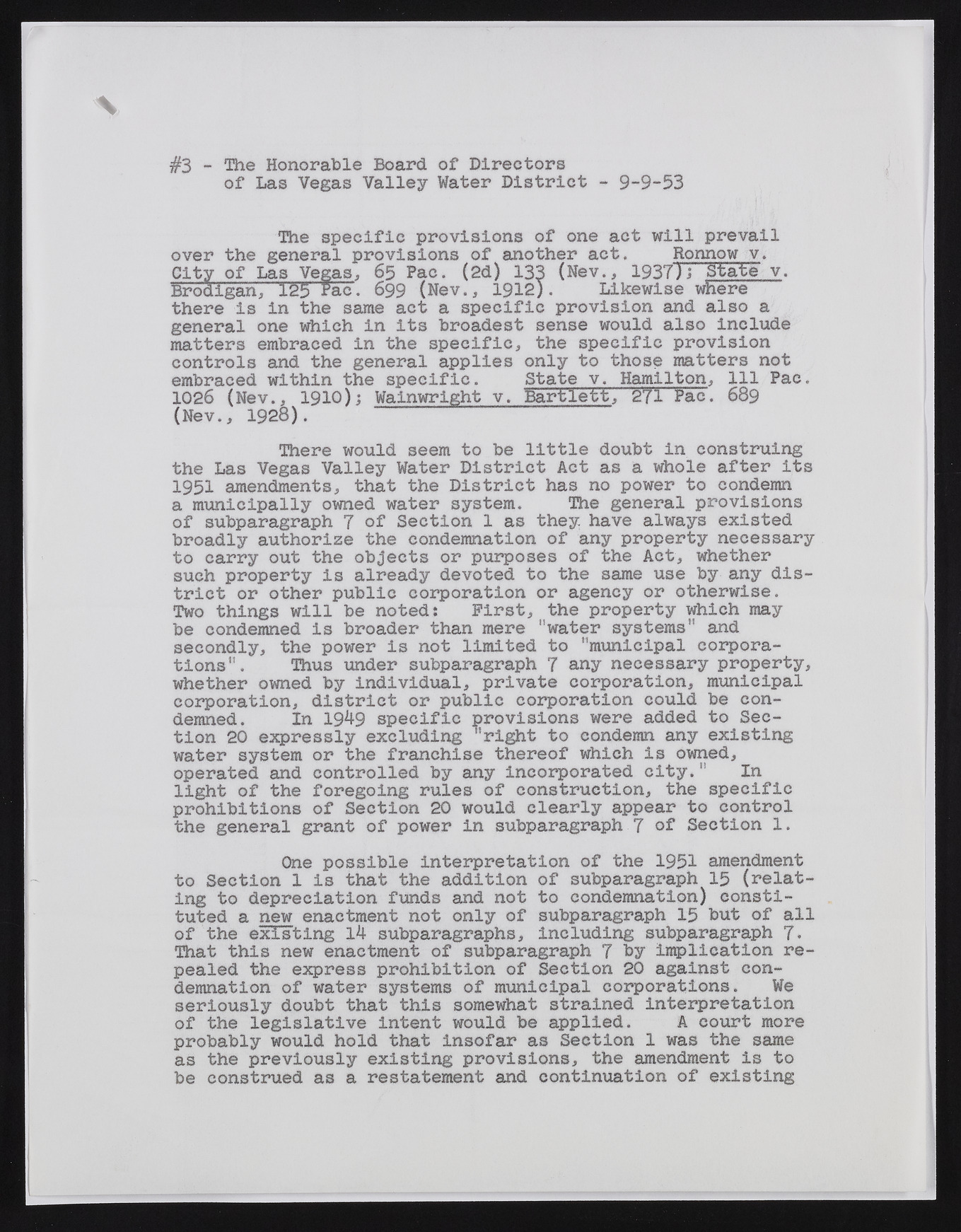Copyright & Fair-use Agreement
UNLV Special Collections provides copies of materials to facilitate private study, scholarship, or research. Material not in the public domain may be used according to fair use of copyrighted materials as defined by copyright law. Please cite us.
Please note that UNLV may not own the copyright to these materials and cannot provide permission to publish or distribute materials when UNLV is not the copyright holder. The user is solely responsible for determining the copyright status of materials and obtaining permission to use material from the copyright holder and for determining whether any permissions relating to any other rights are necessary for the intended use, and for obtaining all required permissions beyond that allowed by fair use.
Read more about our reproduction and use policy.
I agree.Information
Digital ID
Permalink
Details
More Info
Rights
Digital Provenance
Publisher
Transcription
#3 - The Honorable Board of Directors of Las Vegas Valley Water District - 9-9-53 The specific provisions of one act will prevail over the general provisions of another act. Ronnow v. City of Las Vegas, 65 Pac. (2d) 133 (Nev., 1937)i State v. Brodigan, 12$ Pac. 699 (Nev., 1912;. Likewise where there is in the same act a specific provision and also a general one which in Its broadest sense would also include matters embraced in the specific, the specific provision controls and the general applies only to those matters not embraced within the specific. State v. Hamilton, 111 Pac. 1026 (Nev., 1910); Wainwrlght v. Bartlett, 271 Pac. 689 (Nev., 1928). There would seem to be little doubt in construing the Las Vegas Valley Water District Act as a whole after its 1951 amendments, that the District has no power to condemn a municipally owned water system. The general provisions of subparagraph 7 of Section 1 as they, have always existed broadly authorize the condemnation of any property necessary to carry out the objects or purposes of the Act, whether such property is already devoted to the same use by any district or other public corporation or agency or otherwise. Two things will be noted: First, the property which may be condemned is broader than mere ’’water systems" and secondly, the power is not limited to "municipal corporations". Thus under subparagraph 7 any necessary property, whether owned by individual, private corporation, municipal corporation, district or public corporation could be condemned. In 1949 specific provisions were added to Section 20 expressly excluding ^right to condemn any existing water system or the franchise thereof which is owned, operated and controlled by any Incorporated city." In light of the foregoing rules of construction, the specific prohibitions of Section 20 would clearly appear to control the general grant of power in subparagraph 7 of Section 1. One possible interpretation of the 1951 amendment to Section 1 is that the addition of subparagraph 15 (relating to depreciation funds and not to condemnation) constituted a new enactment not only of subparagraph 15 but of all of the existing 14 subparagraphs, including subparagraph 7* That this new enactment of subparagraph 7 by Implication repealed the express prohibition of Section 20 against condemnation of water systems of municipal corporations. We seriously doubt that this somewhat strained Interpretation of the legislative Intent would be applied. A court more probably would hold that insofar as Section 1 was the same as the previously existing provisions, the amendment is to be construed as a restatement and continuation of existing

